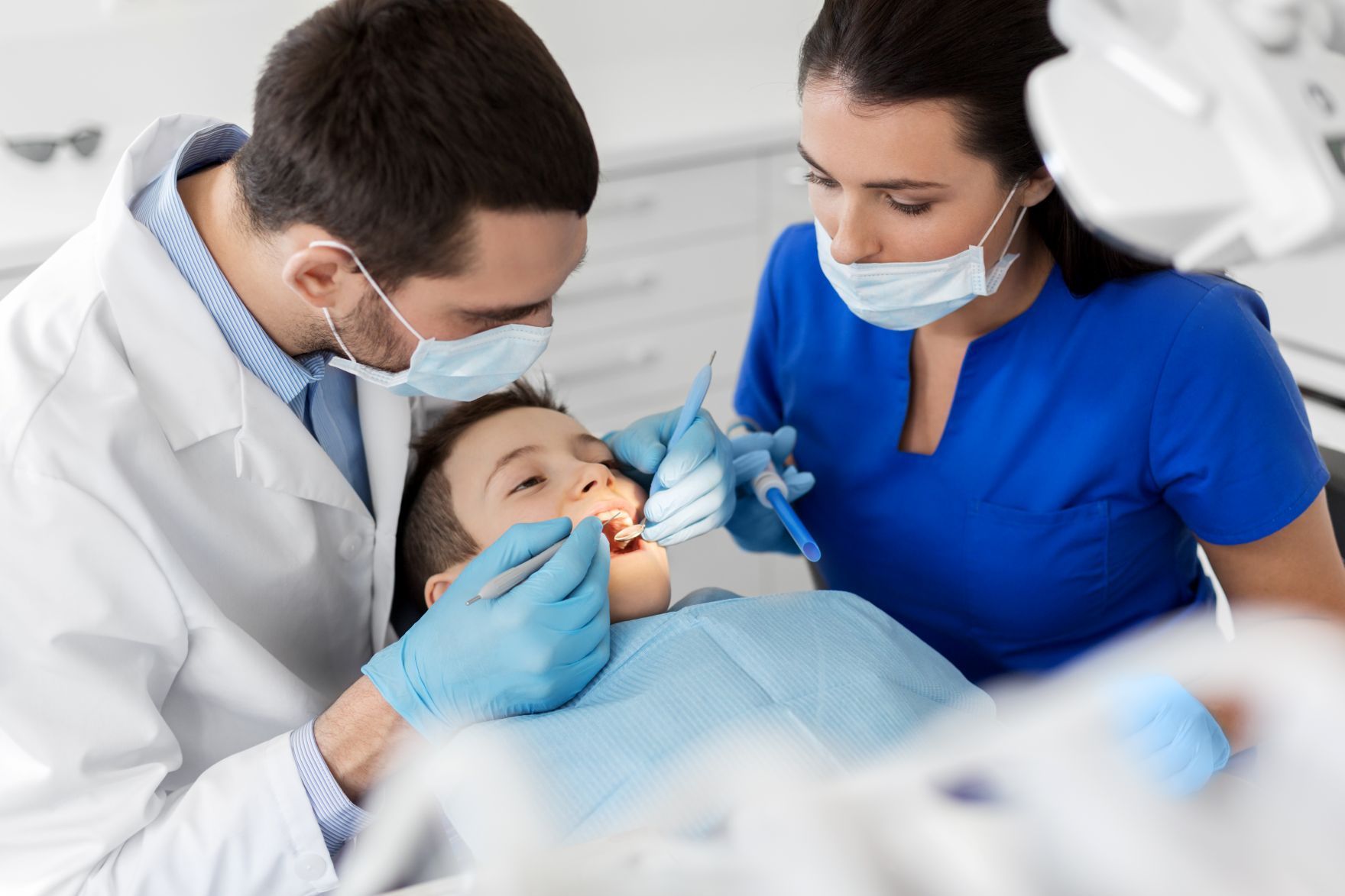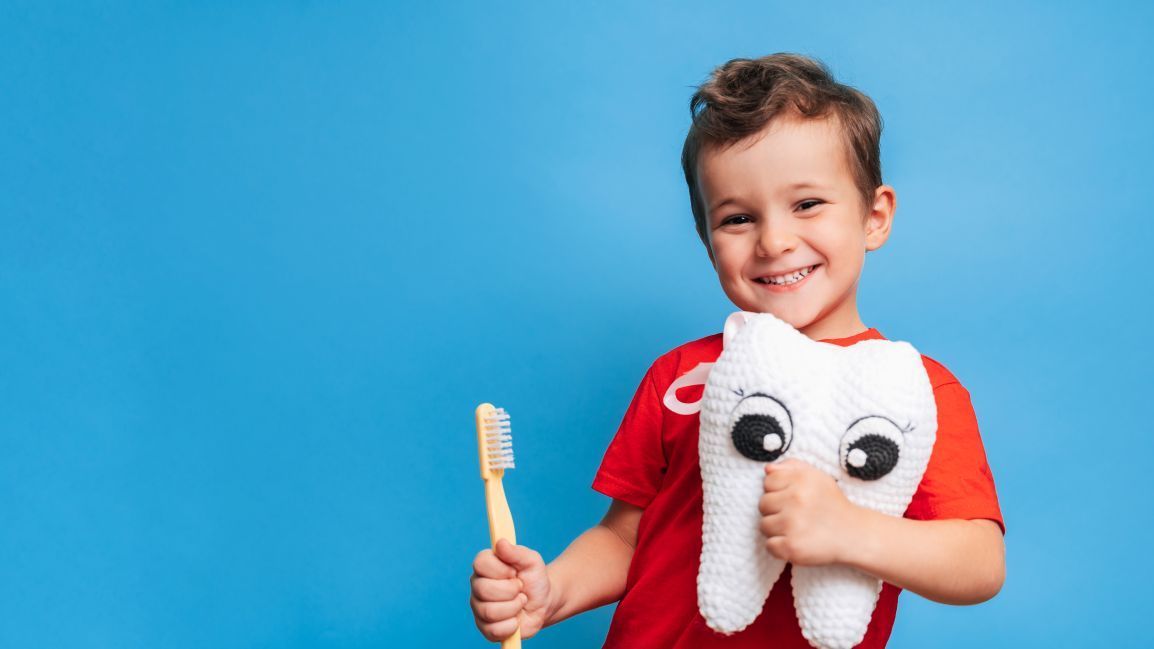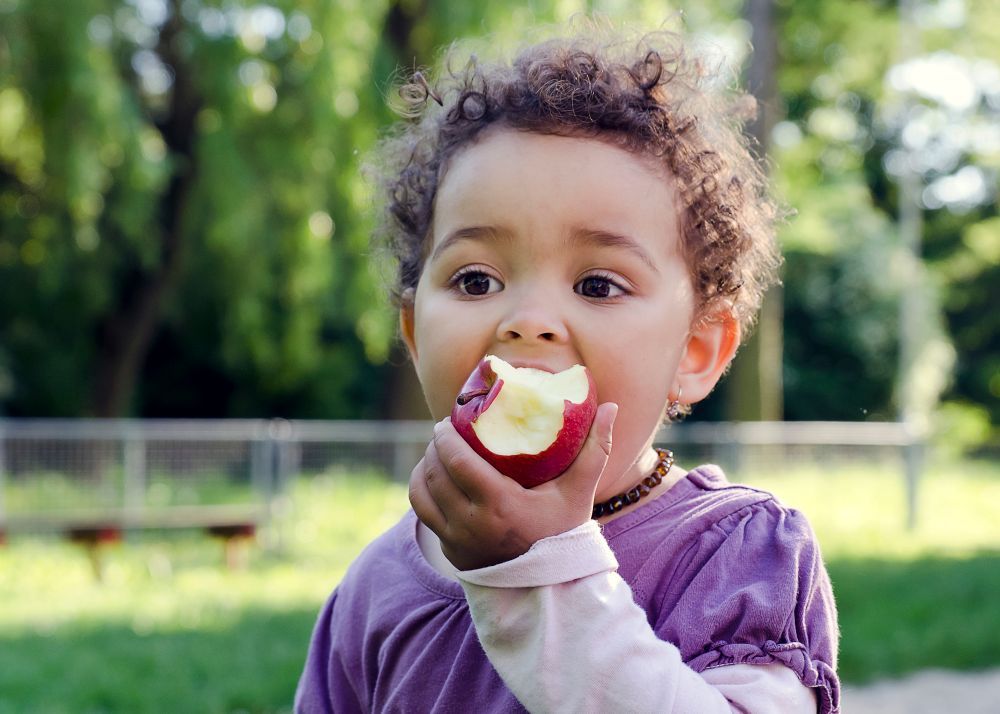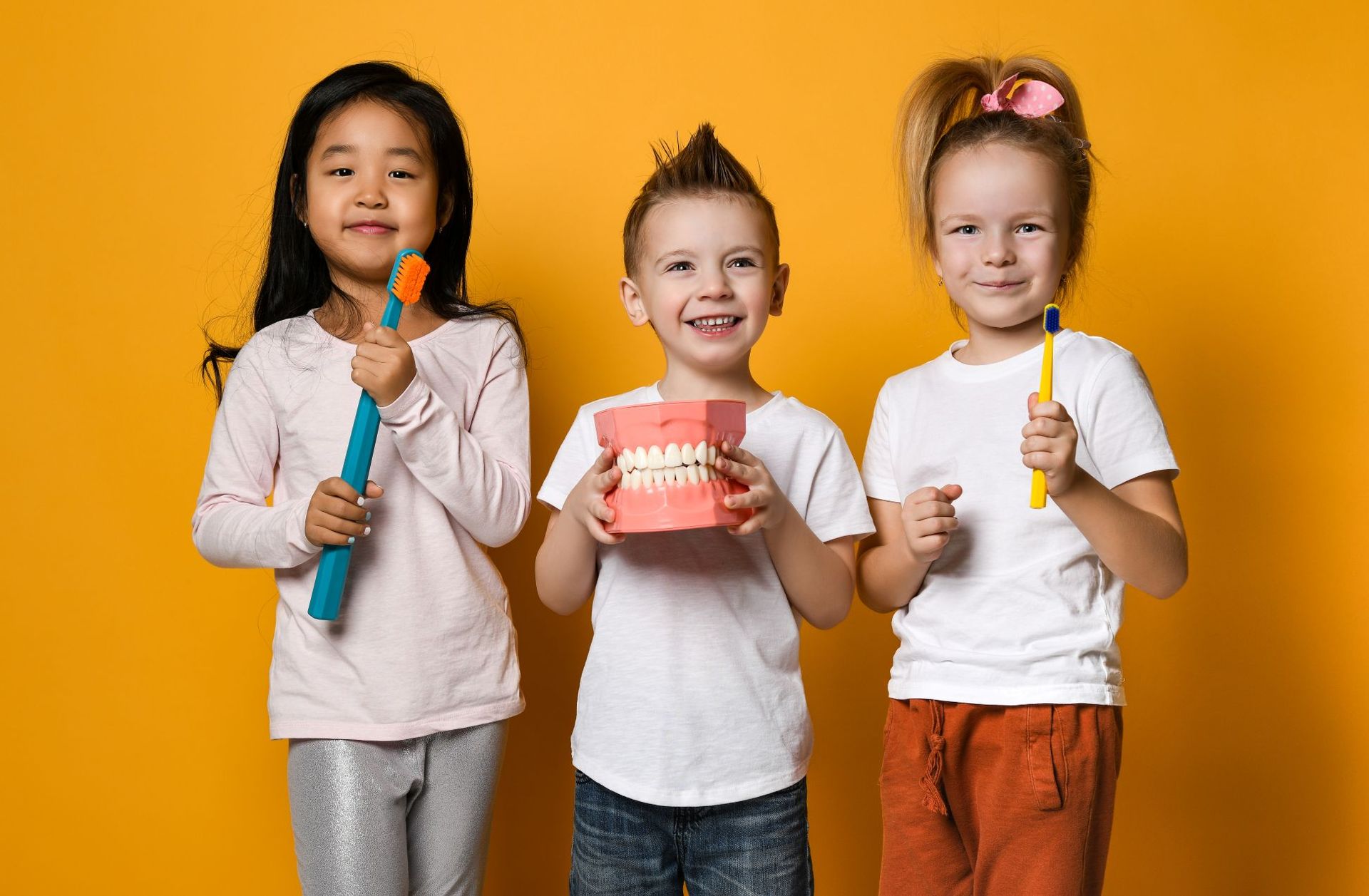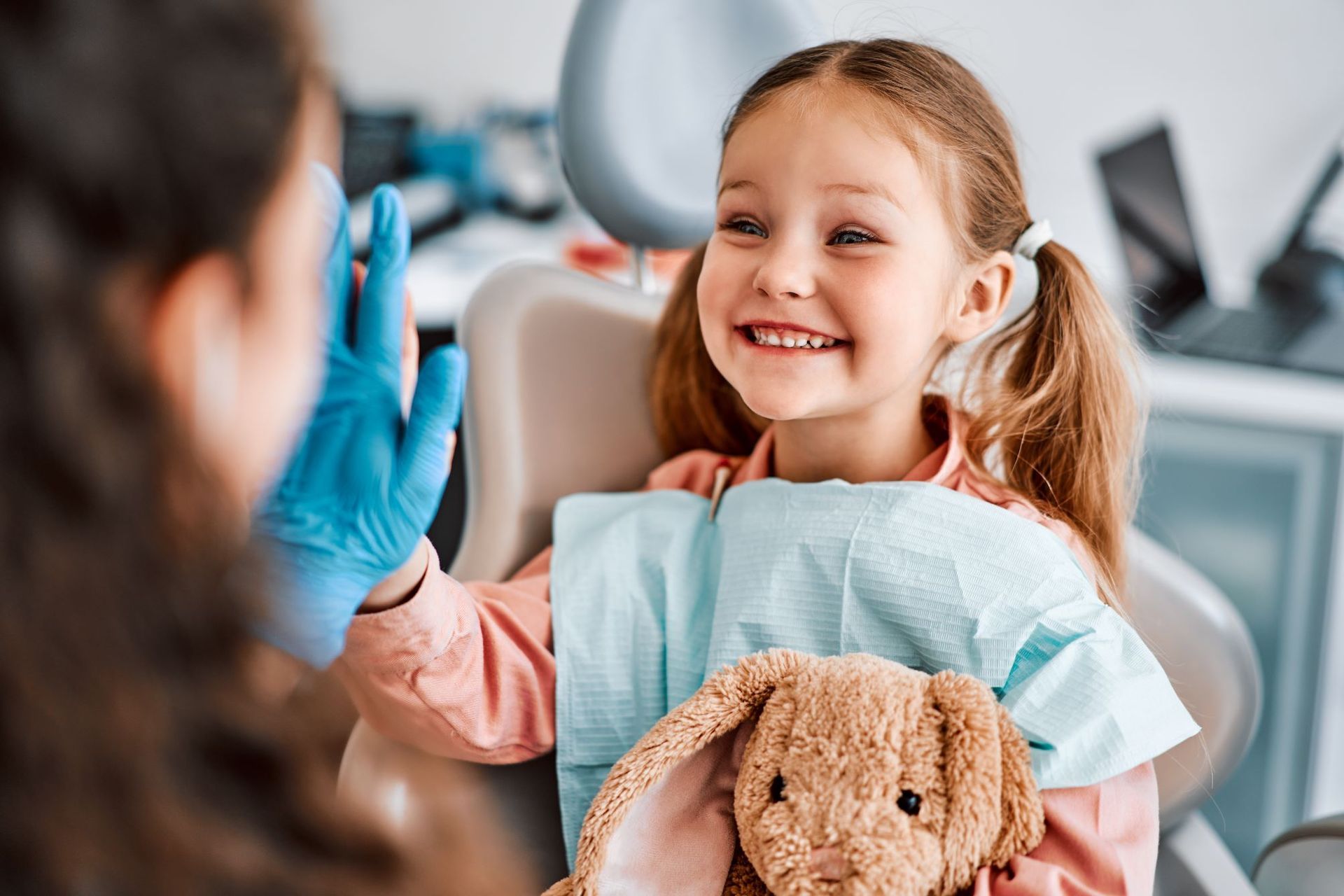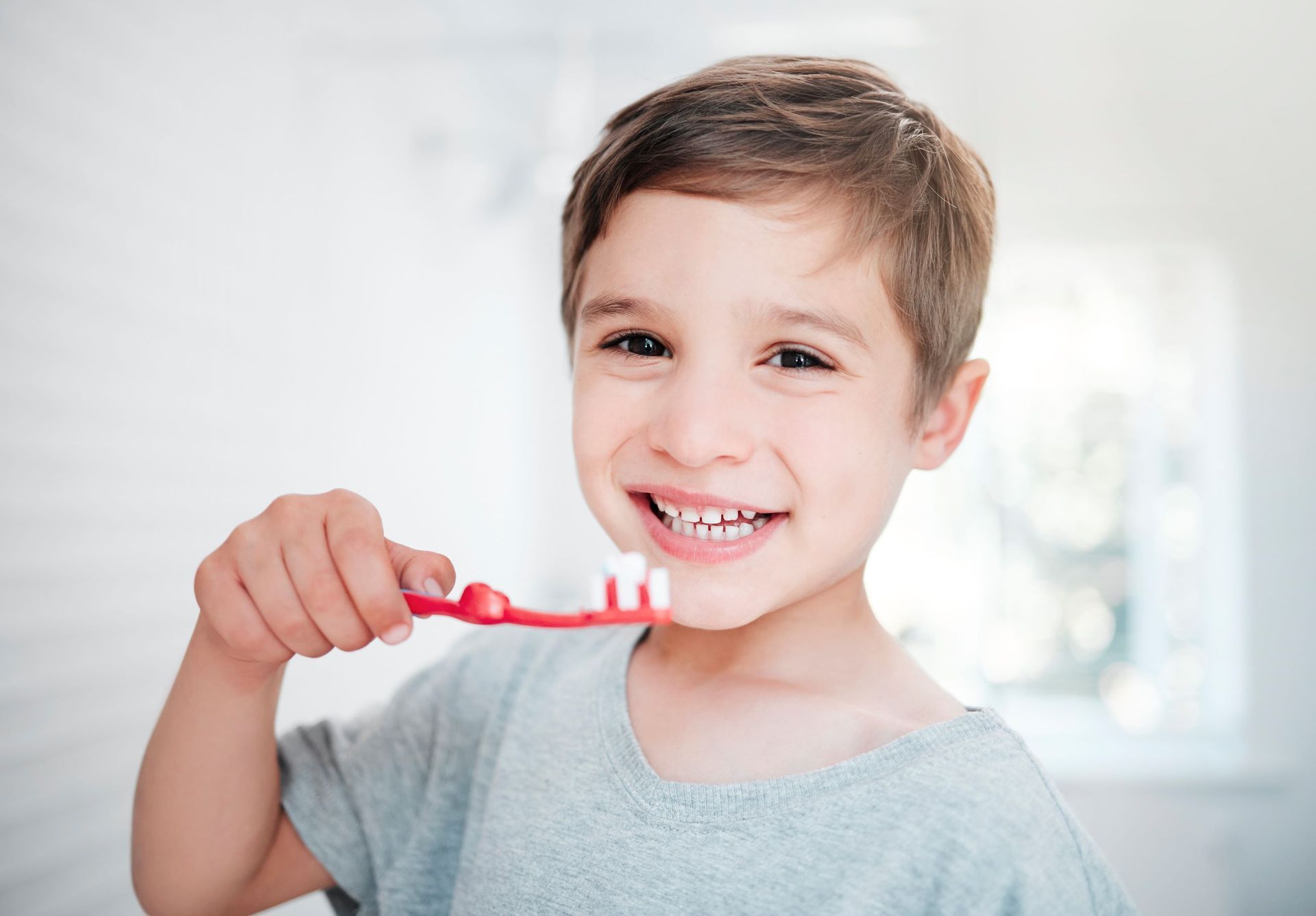Oral Hygiene Routines for Kids: A Step-by-Step Guide
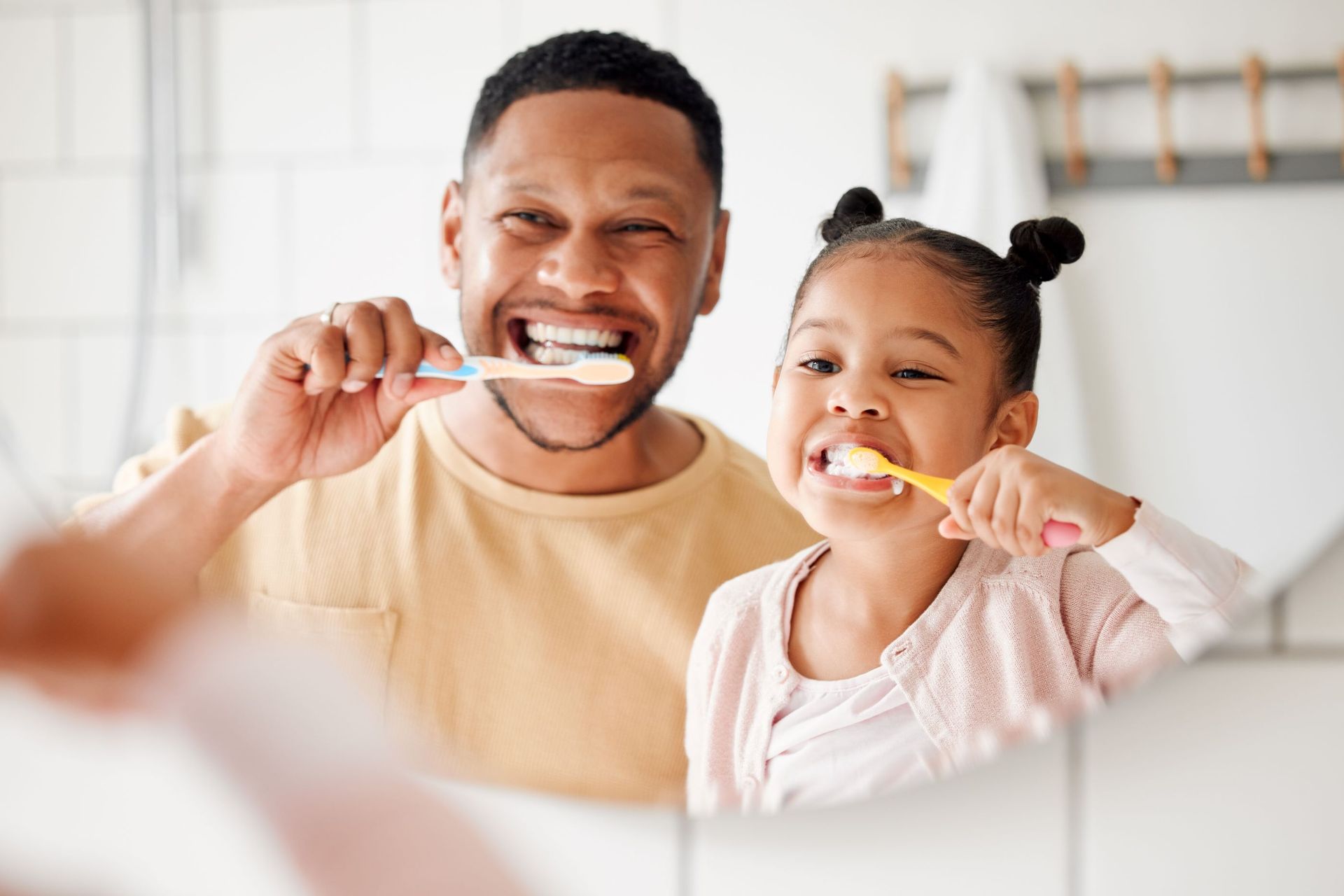
Building healthy smiles with a comprehensive oral hygiene guide for kids
Establishing a strong foundation for oral hygiene from an early age is critical in ensuring the long-term dental health of your children. Proper oral care practices can prevent cavities, gum disease, and other dental issues, contributing to your child's overall health and well-being.
As your trusted pediatric dental practice, we want to give you helpful and age-appropriate advice. This guide explains good oral hygiene routines for kids from infancy to their teenage years. It helps you build healthy habits at every stage of your child's growth.
Infants (0-1 Year)
At this tender age, even before
your baby’s first tooth comes in, it’s important to begin good oral hygiene practices. Early habits set the stage for a healthy mouth. Learn more about
why caring for baby teeth is so important on our blog.
- Wipe Gums: Before teeth emerge, gently wipe your baby’s gums with a soft, damp cloth after feedings.
- First Tooth Brushing: Once the first tooth appears, use a small, soft-bristled toothbrush with a smear of fluoride toothpaste.
- Introduce Fluoride: Consult your dentist about fluoride drops if your water supply lacks adequate fluoride.
Toddlers (1-3 Years)
As your child grows, so do their teeth! It’s time to introduce them to regular brushing and start establishing a routine.
- Brushing Basics: Brush your toddler’s teeth twice a day using a pea-sized amount of fluoride toothpaste. For suggestions on safe and effective toothbrushes, pastes, and other kid-friendly dental products, check out our post.
- Mimic and Play: Let them hold the toothbrush and mimic your actions to make brushing fun.
- Monitor Diet: Limit sugary snacks and drinks to prevent tooth decay.
Preschoolers (3-5 Years)
Preschool years are a critical period to foster independence in oral hygiene while still providing necessary guidance and supervision.
- Build Independence: Encourage your preschooler to brush their teeth on their own with supervision.
- Flossing: Introduce flossing once two teeth touch. Use floss picks designed for kids.
- Routine Dental Visits: Schedule regular dental check-ups to monitor their oral health and get professional cleanings.
Discover
fun ways to teach young children about dental health and care on our blog.
School-Age Kids (6-12 Years)
With a mix of baby teeth and new permanent teeth, this age group benefits from more advanced oral care techniques.
- Empowering Brushing: Teach them the right brushing technique: at least two minutes, twice a day.
- Advanced Flossing: Encourage daily flossing and explain its importance.
- Sealants: Ask your dentist about applying dental sealants to protect molars from cavities.
- Orthodontics: Check if they need orthodontic evaluations.
Teenagers (13+ Years)
Teenagers should be fully responsible for their oral hygiene. This is a continuation of everything they've learned in their younger years, with added challenges like braces and wisdom teeth.
- Responsibility: Encourage teens to take full responsibility for their oral hygiene.
- Braces Care: If they have braces, ensure they follow specific cleaning routines to avoid plaque build-up.
- Healthy Diet: Promote a healthy diet rich in vitamins and minerals to support strong teeth.
- Regular Check-ups: Continue regular dental visits for professional care and guidance.
By following these age-specific steps, you can help ensure your child develops a robust oral hygiene routine. Remember, our pediatric dental practice is
always here to support you and your family’s dental health needs! Happy brushing!


